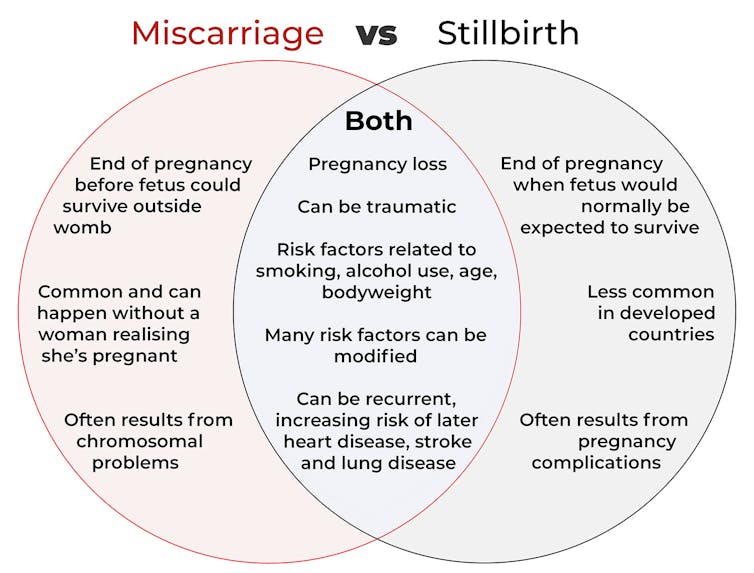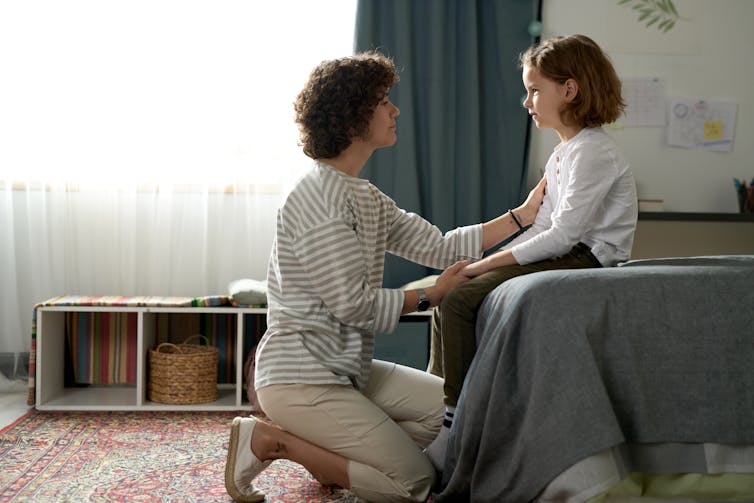
Screaming at Screens?
10almonds is reader-supported. We may, at no cost to you, receive a portion of sales if you purchase a product through a link in this article.
I Screen, You Screen, We All Screen For…?

Dr. Kathryn Birkenbach is a postdoctoral research fellow in the Department of Neuroscience at Columbia University, and Manager of Research at Early Medical in New York.
Kathryn has things to tell us about kids’ neurological development, and screen time spent with electronic devices including phones, tablets, computers, and TVs.
From the 1960s criticism of “the gogglebox” to the modern-day critiques of “iPad babies” as a watchword of parental neglect, there’s plenty people can say against screen time, but Dr. Birkenbach tells us the that the reality is more nuanced:
Context Is Key
On a positive note”: consistent exposure to age-appropriate educational material results in quicker language acquisition than media that’s purely for entertainment purposes, or not age-appropriate.
Contrary to popular belief, children do not in fact learn by osmosis!
Interaction Is Far More Valuable Than Inaction
Kathryn advises that while adults tend to quite easily grasp things from instructional videos, the same does not go for small children.
This means that a lot of educational programming can be beneficial to small children if and only if there is an adult with them to help translate the visual into the practical!
There’s a story that does the rounds on the Internet: a young boy wanted to train his puppy, but didn’t know how. He asked, and was told “search for puppy training on YouTube”. His parents came back later and found him with his iPad, earnestly showing the training videos to the puppy.
We can laugh at the child’s naïvety, knowing that’s not how it works and the puppy will not learn that way, so why make the same mistake in turn?
❝The phenomenon known as the “video deficit effect” can be overcome, when an on-screen guide interacts with the child or a parent is physically present and draws the child’s attention to relevant information.
In other words, interaction with others appears to enhance the perceived salience of on-screen information, unlocking a child’s ability to learn from a medium which would otherwise offer no real-world benefit.❞
Screens Can Supplement, But Can’t Replace, Live Learning & Play
Sci-fi may show us “education pods” in which children learn all they need to from their screen… but according to our most up-to-date science, Dr. Birkenbach says, that simply would not work at all.
Screen time without adult interactions will typically fail to provide small children any benefit.
There is one thing it’s good at, though… attracting and keeping attention.
Thus, even a mere background presence of a TV show in the room will tend to actively reduce the time a small child spends on other activities, including live learning and exploratory play.
The attention-grabbing abilities of TV shows don’t stop at children, though! Adult caregivers will also tend to engage in fewer interactions with their children… and the interactions will be shorter and of lower quality.
In Summary:
- Young children will tend not to learn from non-interactive screen time
- Interactive screen time, ideally with a caregiver, can be educational
- Interactive screen time, not with a carer, can be beneficial (but a weak substitute)
- Interactive screen time refers to shows such as Dora The Explorer, where Dora directly addresses the viewer and asks questions…But it’s reliant on the child caring to answer!
- It can also mean interactive educational apps, provided the child does consciously interact!
- Randomly pressing things is not conscious interaction! The key here is engaging with it intelligently and thoughtfully
- A screen will take a child’s time and attention away from non-screen things: that’s a genuine measurable loss to their development!
Absolute Bottom Line:
Screens can be of benefit to small children, if and only if the material is:
- Age-Appropriate
- Educational
- Interactive
If it’s missing one of those three, it’ll be of little to no benefit, and can even harm, as it reduces the time spent on more beneficial activities.
Don’t Forget…
Did you arrive here from our newsletter? Don’t forget to return to the email to continue learning!
Recommended
Learn to Age Gracefully
Join the 98k+ American women taking control of their health & aging with our 100% free (and fun!) daily emails:
-
What’s the difference between miscarriage and stillbirth?
10almonds is reader-supported. We may, at no cost to you, receive a portion of sales if you purchase a product through a link in this article.
What’s the difference? is a new editorial product that explains the similarities and differences between commonly confused health and medical terms, and why they matter.
Former US First Lady Michelle Obama revealed in her memoir she had a miscarriage. UK singer-songwriter and actor Lily Allen has gone on the record about her stillbirth.
Both miscarriage and stillbirth are sadly familiar terms for pregnancy loss. They can be traumatic life events for the prospective parents and family, and their impacts can be long-lasting. But the terms can be confused.
Here are some similarities and differences between miscarriage and stillbirth, and why they matter.
christinarosepix/Shutterstock Let’s start with some definitions
In broad terms, a miscarriage is when a pregnancy ends while the fetus is not yet viable (before it could survive outside the womb).
This is the loss of an “intra-uterine” pregnancy, when an embryo is implanted in the womb to then develop into a fetus. The term miscarriage excludes ectopic pregnancies, where the embryo is implanted outside the womb.
However, stillbirth refers to the end of a pregnancy when the fetus is normally viable. There may have been sufficient time into the pregnancy. Alternatively, the fetus may have grown large enough to be normally expected to survive, but it dies in the womb or during delivery.
The Australian Institute of Health and Welfare defines stillbirth as a fetal death of at least 20 completed weeks of gestation or with a birthweight of at least 400 grams.
Internationally, definitions of stillbirth vary depending on the jurisdiction.
How common are they?
It is difficult to know how common miscarriages are as they can happen when a woman doesn’t know she is pregnant. There may be no obvious symptoms or something that looks like a heavier-than-normal period. So miscarriages are likely to be more common than reported.
Studies from Europe and North America suggest a miscarriage occurs in about one in seven pregnancies (15%). More than one in eight women (13%) will have a miscarriage at some time in her life.
Around 1–2% of women have recurrent miscarriages. In Australia this is when someone has three or more miscarriages with no pregnancy in between.
Australia has one of the lowest rates of stillbirth in the world. The rate has been relatively steady over the past 20 years at 0.7% or around seven per 1,000 pregnancies.
Who’s at risk?
Someone who has already had a miscarriage or stillbirth has an increased risk of that outcome again in a subsequent pregnancy.
Compared with women who have had a live birth, those who have had a stillbirth have double the risk of another. For those who have had recurrent miscarriages, the risk of another miscarriage is four-fold higher.
Some factors have a u-shaped relationship, with the risk of miscarriage and stillbirth lowest in the middle.
For instance, maternal age is a risk factor for both miscarriage and stillbirth, especially if under 20 years old or older than 35. Increasing age of the male is only a risk factor for stillbirth, especially for fathers over 40.
An older dad can be a risk factor for stillbirth, but not miscarriage. Elizaveta Galitckaia/Shutterstock Similarly for maternal bodyweight, women with a body mass index or BMI in the normal range have the lowest risk of miscarriage and stillbirth compared with those in the obese or underweight categories.
Lifestyle factors such as smoking and heavy alcohol drinking while pregnant are also risk factors for both miscarriage and stillbirth.
So it’s important to not only avoid smoking and alcohol while pregnant, but before getting pregnant. This is because early in the pregnancy, women may not know they have conceived and could unwittingly expose the developing fetus.
Why do they happen?
Miscarriage often results from chromosomal problems in the developing fetus. However, genetic conditions or birth defects account for only 7-14% of stillbirths.
Instead, stillbirths often relate directly to pregnancy complications, such as a prolonged pregnancy or problems with the umbilical cord.
Maternal health at the time of pregnancy is another contributing factor in the risk of both miscarriage and stillbirths.
Chronic diseases, such as high blood pressure, diabetes, hypothyroidism (underactive thyroid), polycystic ovary syndrome, problems with the immune system (such as an autoimmune disorder), and some bacterial and viral infections are among factors that can increase the risk of miscarriage.
Similarly mothers with diabetes, high blood pressure, and untreated infections, such as malaria or syphilis, face an increased risk of stillbirth.
In many cases, however, the specific cause of pregnancy loss is not known.
How about the long-term health risks?
Miscarriage and stillbirth can be early indicators of health issues later in life.
For instance, women who have had recurrent miscarriages or recurrent stillbirths are at higher risk of cardiovascular disease (such as heart disease or stroke).
Our research has also looked at the increased risk of stroke. Compared with women who had never miscarried, we found women with a history of three or more miscarriages had a 35% higher risk of non-fatal stroke and 82% higher risk of fatal stroke.
Women who had a stillbirth had a 31% higher risk of a non-fatal stroke, and those who had had two or more stillbirths were at a 26% higher risk of a fatal stroke.
We saw similar patterns in chronic obstructive pulmonary disease or COPD, a progressive lung disease with respiratory symptoms such as breathlessness and coughing.
Our data showed women with a history of recurrent miscarriages or stillbirths were at a 36% or 67% higher risk of COPD, respectively, even after accounting for a history of asthma.
Long-term health risks of recurrent miscarriages or stillbirths include developing lung disease later in life. PRPicturesProduction/Shutterstock Why is all this important?
Being well-informed about the similarities and differences between these two traumatic life events may help explain what has happened to you or a loved one.
Where risk factors can be modified, such as smoking and obesity, this information can be empowering for individuals who wish to reduce their risk of miscarriage and stillbirth and make lifestyle changes before they become pregnant.
More information and support about miscarriage and stillbirth is available from SANDS and Pink Elephants.
Gita Mishra, Professor of Life Course Epidemiology, Faculty of Medicine, The University of Queensland; Chen Liang, PhD student, reproductive history and non-communicable diseases in women, The University of Queensland, and Jenny Doust, Clinical Professorial Research Fellow, School of Public Health, The University of Queensland
This article is republished from The Conversation under a Creative Commons license. Read the original article.
Share This Post
-
Matcha is having a moment. What are the health benefits of this green tea drink?
10almonds is reader-supported. We may, at no cost to you, receive a portion of sales if you purchase a product through a link in this article.
Matcha has experienced a surge in popularity in recent months, leading to reports of global shortages and price increases.
If you haven’t been caught up in the craze, matcha is a powdered version of green tea. On a cafe menu you might see a hot or iced matcha latte, or even a matcha-flavoured cake or pastry. A quick google brings up countless recipes incorporating matcha, both sweet and savoury.
Retailers and cafe owners have suggested the main reasons for matcha’s popularity include its “instagrammable” looks and its purported health benefits.
But what are the health benefits of matcha? Here’s what the evidence says.
Rawpixel.com/Shutterstock First, what is matcha?
Matcha is a finely ground powder of green tea leaves, which come from the plant Camellia sinensis. This is the same plant used to make green and black tea. However, the production process differentiates matcha from green and black tea.
For matcha, the tea plant is grown in shade. Once the leaves are harvested, they’re steamed and dried and the stems are removed. Then the leaves are carefully ground at controlled temperatures to form the powder.
The production process for green tea is simpler. The leaves are picked from the unshaded plants, heated and then dried. We then steep the dried leaves in hot water to get tea (whereas with matcha the whole leaf is consumed).
With black tea, after the leaves are picked they’re exposed to air, which leads to oxidation. This makes the leaves black and gives the tea a different flavour.
In countries such as Japan, matcha is traditionally whisked with water and served in a stone bowl. Charlotte May/Pexels A source of phytonutrients
Phytonutrients are chemical compounds found in plants which have a range of benefits for human health. Matcha contains several.
Chlorophyll gives plants such as Camellia sinensis their green colour. There’s some evidence chlorophyll may have health benefits – including anti-inflammatory, anti-cancer and anti-obesity effects – due to its antioxidant properties. Antioxidants neutralise free radicals, which are unstable molecules that harm our cells.
Theanine has been shown to improve sleep and reduce stress and anxiety. The only other known dietary source of theanine is mushrooms.
Caffeine is a phytonutrient we know well. Aside from increasing alertness, caffeine has also demonstrated antioxidant effects and some protection against a range of chronic and neurodegenerative diseases. However, too much caffeine can have negative side effects.
Interestingly, shading the plants while growing appears to change the nutritional composition of the leaf and may lead to higher levels of these phytonutrients in matcha compared to green tea.
Another compound worth mentioning is called catechins, of which there are several different types. Matcha powder similarly has more catechins than green tea. They are strong antioxidants, which have been shown to have protective effects against bacteria, viruses, allergies, inflammation and cancer. Catechins are also found in apples, blueberries and strawberries.
What are the actual health benefits?
So we know matcha contains a variety of phytonutrients, but does this translate to noticeable health benefits?
A review published in 2023 identified only five experimental studies that have given matcha to people. These studies gave participants about 2–4g of matcha per day (equivalent to 1–2 teaspoons of matcha powder), compared to a placebo, as either a capsule, in tea or in foods. Matcha decreased stress and anxiety, and improved memory and cognitive function. There was no effect on mood.
A more recent study showed 2g of matcha in older people aged 60 to 85 improved sleep quality. However, in younger people aged 27 to 64 in another study, matcha had little effect on sleep.
A study in people with obesity found no difference in the weight loss observed between the matcha group and the control group. This study did not randomise participants, and people knew which group they had been placed in.
It could be hypothesised that given you consume all of the leaf, and given levels of some phytonutrients may be higher due to the growing conditions, matcha may have more nutritional benefits than green tea. But to my knowledge there has been no direct comparison of health outcomes from green tea compared to matcha.
Matcha has grown in popularity – but evidence for its health benefits is still limited. Usanee/Shutterstock There’s lots of evidence for green tea
While to date a limited number of studies have looked at matcha, and none compared matcha and green tea, there’s quite a bit of research on the health benefits of drinking green tea.
A systematic review of 21 studies on green tea has shown similar benefits to matcha for improvements in memory, plus evidence for mood improvement.
There’s also evidence green tea provides other health benefits. Systematic reviews have shown green tea leads to weight loss in people with obesity, lower levels of certain types of cholesterol, and reduced blood pressure. Green tea may also lower the risk of certain types of cancer.
So, if you can’t get your hands on matcha at the moment, drinking green tea may be a good way to get your caffeine hit.
Although the evidence on green tea provides us with some hints about the health benefits of matcha, we can’t be certain they would be the same. Nonetheless, if your local coffee shop has a good supply of matcha, there’s nothing to suggest you shouldn’t keep enjoying matcha drinks.
However, it may be best to leave the matcha croissant or cronut for special occasions. When matcha is added to foods with high levels of added sugar, salt and saturated fat, any health benefits that could be attributed to the matcha may be negated.
Evangeline Mantzioris, Program Director of Nutrition and Food Sciences, Accredited Practising Dietitian, University of South Australia
This article is republished from The Conversation under a Creative Commons license. Read the original article.
Share This Post
-
To Nap Or Not To Nap; That Is The Question
10almonds is reader-supported. We may, at no cost to you, receive a portion of sales if you purchase a product through a link in this article.
It’s Q&A Day at 10almonds!
Have a question or a request? We love to hear from you!
In cases where we’ve already covered something, we might link to what we wrote before, but will always be happy to revisit any of our topics again in the future too—there’s always more to say!
As ever: if the question/request can be answered briefly, we’ll do it here in our Q&A Thursday edition. If not, we’ll make a main feature of it shortly afterwards!
So, no question/request too big or small
❝Is it good to nap in the afternoon, or better to get the famous 7 to 9 hours at night and leave it at that? I’m worried that daytime napping to make up for a shorter night’s sleep will just perpetuate and worsen it in the long run, is there a categorical answer here?❞
Generally considered best is indeed the 7–9 hours at night (yes, including at older ages):
Why You Probably Need More Sleep
…and sleep efficiency does matter too:
Why 7 Hours Sleep Is Not Enough
…which in turn, is influenced by factors other than just length and depth:
The 6 Dimensions Of Sleep (And Why They Matter)
However! Knowing what is best in theory does not help at all if it’s unattainable in practice. So, if you’re not getting a good night’s sleep (and we’ll assume you’re already practising good sleep hygiene; fresh bedding, lights-off by a certain time, no alcohol or caffeine before bed, that kind of thing), then a first port-of-call may be sleep remedies:
Safe Effective Sleep Aids For Seniors
If even those don’t work, then napping is now likely your best back-up option. But, napping done incorrectly can indeed cause as many problems as it solves. There’s a difference between:
- “I napped and now I have energy again” and you continue with your day
- “Darkness took me, and I strayed out of thought and time. Stars wheeled overhead, and every day was as long as the life age of the earth—but it was not the end.” and now you’re not sure whether it’s day or night, whose house you’re in, or whether you’ve been drugged.
These two very common napping experiences are influenced by factors that we can control:
How To Nap Like A Pro (No More “Sleep Hangovers”!)
If you still prefer to not risk napping but do need at least some kind of refreshment that’s actually a refreshment and not just taking stimulants, then you might consider this practice (from yoga nidra) that gives some of the same benefits of sleep, without actually sleeping:
Non-Sleep Deep Rest: A Neurobiologist’s Insights
Take care!
Share This Post
Related Posts
-
Bushfire smoke affects children differently. Here’s how to protect them
10almonds is reader-supported. We may, at no cost to you, receive a portion of sales if you purchase a product through a link in this article.
Bushfires are currently burning in Australian states including Victoria, Tasmania, Western Australia and South Australia. In some areas, fire authorities have warned residents about the presence of smoke.
Bushfire smoke is harmful to our health. Tiny particles of ash can lodge deep in the lungs.
Exposure to this type of smoke may worsen existing conditions such as asthma, and induce a range of health effects from irritation of the eyes, nose and throat to changes in the cardiovascular system.
Public health recommendations during smoke events tend to provide general advice, and don’t often include advice specifically geared at children. But children are not just little adults. They are uniquely vulnerable to environmental hazards such as bushfire smoke for a number of reasons.
Different physiology, different behaviour
Children’s lungs are still developing and maturing.
Airways are smaller in children, especially young children, which is associated with greater rates of particle deposition – when particles settle on the surfaces of the airways.
Children also breathe more air per kilogram of body weight compared with adults, and therefore inhale more polluted air relative to their size.
Further, children’s detoxification systems are still developing, so environmental toxins take longer to effectively clear from their bodies.
Meanwhile, children’s behaviour and habits may expose them to more environmental toxins than adults. For example, they tend to do more physical activity and spend more time outdoors. Higher levels of physical activity lead to more air inhaled per kilogram of body weight.
Also, a normal and important part of children’s early play is exploring their environment, including by putting things in their mouth. This can result in kids ingesting soil, dust and dirt, which often contain environmental contaminants.
For these reasons, it’s important to consider the specific needs of children when providing advice on what to do when there’s smoke in the air.
Keeping our environments healthy
The Australian government offers recommendations for minimising the health risks from exposure to bushfire smoke. The main advice includes staying indoors and keeping doors and windows closed.
This is great advice when the smoke is thick outside, but air pollutants may still accumulate inside the home. So it’s important to air your home once the smoke outside starts to clear. Take advantage of wind changes to open up and get air moving out of the house with a cross breeze.
Kids are natural scientists, so get them involved. For example, you and your child can “rate” the air each hour by looking at a landmark outside your home and rating how clearly you can see it. When you notice the haze is reducing, open up the house and clear the air.
Because air pollutants settle onto surfaces in our home and into household dust, an easy way to protect kids during smoky periods is to do a daily dust with a wet cloth and vacuum regularly. This will remove pollutants and reduce ingestion by children as they play. Frequent hand washing helps too.
Healthy bodies and minds
Research exploring the effects of bushfire smoke exposure on children’s health is sparse. However, during smoke events, we do see an increase in hospital visits for asthma, as well as children reporting irritation to their eyes, nose and throat.
If your child has asthma or another medical condition, ensure they take any prescribed medications on a regular schedule to keep their condition well controlled. This will minimise the risk of a sudden worsening of their symptoms with bushfire smoke exposure.
Make sure any action plans for symptom flare-ups are up to date, and ensure you have an adequate supply of in-date medication somewhere easy to locate and access.
Children may be anxious during a bushfire.
Media_Photos/ShutterstockKids can get worried during bushfires, and fire emergencies have been linked with a reduction in children’s mental health. Stories such as the Birdie’s Tree books can help children understand these events do pass and people help one another in times of difficulty.
Learning more about air pollution can help too. Our group has a children’s story explaining how air pollution affects our bodies and what can help.
It’s also important for parents and caregivers not to get too stressed, as children cope better when their parents manage their own anxiety and help their children do the same. Try to strike a balance between being vigilant and staying calm.
What about masks?
N95 masks can protect the wearer from fine particles in bushfire smoke, but their use is a bit complicated when it comes to kids. Most young children won’t be able to fit properly into an N95 mask, or won’t tolerate the tight fit for long periods. Also, their smaller airways make it harder for young children to breathe through a mask.
If you choose to use an N95 mask for your children, it’s best to save them for instances when high-level outdoor exposure is unavoidable, such as if you’re going outside when the smoke is very thick.
N95 masks should be replaced after around four hours or when they become damp.
If your child has an existing heart or lung condition, consult their doctor before having them wear an N95 mask.
Our team is currently recruiting for a study exploring the effects of bushfire smoke in children. If you live in south east Queensland and are interested in participating in the event of a bushfire or hazard reduction burn near your home, please express your interest here.
Dwan Vilcins, Group leader, Environmental Epidemiology, Children’s Health Environment Program, The University of Queensland; Nicholas Osborne, Associate Professor, School of Public Health, The University of Queensland, and Paul D. Robinson, Conjoint Professor in Respiratory and Sleep Medicine, Child Health Research Centre, The University of Queensland
This article is republished from The Conversation under a Creative Commons license. Read the original article.
Don’t Forget…
Did you arrive here from our newsletter? Don’t forget to return to the email to continue learning!
Learn to Age Gracefully
Join the 98k+ American women taking control of their health & aging with our 100% free (and fun!) daily emails:
-
Can Saturated Fats Be Healthy?
10almonds is reader-supported. We may, at no cost to you, receive a portion of sales if you purchase a product through a link in this article.
Saturated Fat: What’s The Truth?
We asked you for your health-related opinion of saturated fat, and got the above-pictured, below-described, set of results.
- Most recorded votes were for “Saturated fat is good, but only some sources, and/or in moderation”
- This is an easy one to vote for, because of the “and/or in moderation” part, which tends to be a “safe bet” for most things.
- Next most popular was “Saturated fat is terrible for the health and should be avoided”
- About half as many recorded votes were for “I’m not actually sure what makes saturated fat different”, which is a very laudable option to click. Admitting when we don’t know things (and none of us know everything) is a very good first step to learning about them!
- Fewest recorded votes were for “Saturated fat is the best source of energy; we should get plenty”.
So, what does the science say?
First, a bit of physics, chemistry, and biology
You may be wondering what, exactly, saturated fats are “saturated” with. That’s a fair question, so…
All fats have a molecular structure made up of carbon, hydrogen, and oxygen atoms. Saturated fats are saturated with hydrogen, and thus have only single bonds between carbon atoms (unsaturated fats have at least one double-bond between carbon atoms).
The observable effect this has on them, is that fats that are saturated with hydrogen are solid at room temperature, whereas unsaturated fats are liquid at room temperature. Their different properties also make for different interactions inside the human body, including how likely or not they are to (for example) clog arteries.
See also: Could fat in your bloodstream cause blood clots?
Saturated fat is the best source of energy; we should get plenty: True or False?
False, in any reasonable interpretation, anyway. That is to say, if your idea of “plenty” is under 13g (e.g: two tablespoons of butter, and no saturated fat from other sources, e.g. meat) per day, then yes, by all means feel free to eat plenty. More than that, though, and you might want to consider trimming it down a bit.
The American Heart Association has this to say:
❝When you hear about the latest “diet of the day” or a new or odd-sounding theory about food, consider the source.
The American Heart Association recommends limiting saturated fats, which are found in butter, cheese, red meat and other animal-based foods, and tropical oils.
Decades of sound science has proven it can raise your “bad” cholesterol and put you at higher risk for heart disease.❞
Source: The American Heart Association Diet and Lifestyle Recommendations on Saturated Fat
The British Heart Foundation has a similar statement:
❝Despite what you read in the media, our advice is clear: replace saturated fats with unsaturated fats and avoid trans fats. Saturated fat is the kind of fat found in butter, lard, ghee, fatty meats and cheese. This is linked to an increased risk of heart and circulatory disease❞
Source: British Heart Foundation: What does fat do and what is saturated fat?
As for the World Health Organization:
❝1. WHO strongly recommends that adults and children reduce saturated fatty acid intake to 10% of total energy intake
2. WHO suggests further reducing saturated fatty acid intake to less than 10% of total energy intake
3. WHO strongly recommends replacing saturated fatty acids in the diet with polyunsaturated fatty acids; monounsaturated fatty acids from plant sources; or carbohydrates from foods containing naturally occurring dietary fibre, such as whole grains, vegetables, fruits and pulses.❞
Source: Saturated fatty acid and trans-fatty acid intake for adults and children: WHO guideline
Please note, organizations such as the AHA, the BHF, and the WHO are not trying to sell us anything, and just would like us to not die of heart disease, the world’s #1 killer.
As for “the best source of energy”…
We evolved to eat (much like our nearest primate cousins) a diet consisting mostly of fruits and other edible plants, with a small supplementary amount of animal-source protein and fats.
That’s not to say that because we evolved that way we have to eat that way—we are versatile omnivores. But for example, we are certainly not complete carnivores, and would quickly sicken and die if we tried to live on only meat and animal fat (we need more fiber, more carbohydrates, and many micronutrients that we usually get from plants)
The closest that humans tend to come to doing such is the ketogenic diet, which focuses on a high fat, low carbohydrate imbalance, to promote ketosis, in which the body burns fat for energy.
The ketogenic diet does work, and/but can cause a lot of health problems if a lot of care is not taken to avoid them.
See for example: 7 Keto Risks To Keep In Mind
Saturated fat is terrible for the health and should be avoided: True or False?
False, if we are talking about “completely”.
Firstly, it’s practically impossible to cut out all saturated fats, given that most dietary sources of fat are a mix of saturated, unsaturated (mono- and poly-), and trans fats (which are by far the worst, but beyond the scope of today’s main feature).
Secondly, a lot of research has been conducted and found insignificant or inconclusive results, in cases where saturated fat intake was already within acceptable levels (per the recommendations we mentioned earlier), and then cut down further.
Rather than fill up the newsletter with individual studies of this kind here’s a high-quality research review, looking at 19 meta-analyses, each of those meta-analyses having looked at many studies:
Dietary saturated fat and heart disease: a narrative review
Saturated fat is good, but only some sources, and/or in moderation: True or False?
True! The moderation part is easy to guess, so let’s take a look at the “but only some sources”.
We were not able to find any convincing science to argue for health-based reasons to favor plant- or animal-sourced saturated fat. However…
Not all saturated fats are created equal (there are many kinds), and also many of the foods containing them have additional nutrients, or harmful compounds, that make a big difference to overall health, when compared gram-for-gram in terms of containing the same amount of saturated fat.
For example:
- Palm oil’s saturated fat contains a disproportionate amount of palmitic acid, which raises LDL (“bad” cholesterol) without affecting HDL (“good” cholesterol), thus having an overall heart-harmful effect.
- Most animal fats contain a disproportionate amount of stearic acid, which has statistically insignificant effects on LDL and HDL levels, and thus is broadly considered “heart neutral” (in moderation!)
- Coconut oil’s saturated fat contains a disproportionate amount of lauric acid, which raises total cholesterol, but mostly HDL without affecting LDL, thus having an overall heart-beneficial effect (in moderation!)
Do you know what’s in the food you eat?
Test your knowledge with the BHF’s saturated fat quiz!
Enjoy!
Don’t Forget…
Did you arrive here from our newsletter? Don’t forget to return to the email to continue learning!
Learn to Age Gracefully
Join the 98k+ American women taking control of their health & aging with our 100% free (and fun!) daily emails:
- Most recorded votes were for “Saturated fat is good, but only some sources, and/or in moderation”
-
Tiramisu Crunch Bites
10almonds is reader-supported. We may, at no cost to you, receive a portion of sales if you purchase a product through a link in this article.
It’s coffee, it’s creamy, it’s nutty, it’s chocolatey, what’s not to love? It has all the well-loved flavors of tiramisu, but this recipe is a simple one, and it’s essentially stuffed dates in a way you’ve never had them before. They’re delectable, decadent, and decidedly good for your health. These things are little nutrient-bombs that’ll keep you reaching for more.
You will need
- Coffee (we will discuss this)
- 150g (5.5oz) mascarpone (if vegan or lactose-intolerant, can be substituted with vegan varieties, or at a pinch, pressed silken tofu)
- 500g (1lb) dates (Medjool are ideal)
- Twice as many almonds as you have dates
- 50g (2oz) dark chocolate (the darkest, bitterest, you can find)
- Edible flower petals if you can source them (some shops sell dried rose petals for this purpose)
Method
(we suggest you read everything at least once before doing anything)
1) Take the mascarpone and whisk (or blend) it with the coffee. What kind of coffee, you ask? Many will use instant coffee (1tbsp granules mixed with enough boiling water to dissolve it), and that is actually healthiest (counterintuitive but true) but if you care for flavor over health, and have the means to make espresso, make it ristretto (so, stop it halfway through filling up an espresso cup), let it cool, and use that. Absolute bonus for flavor (not for health): if you have the means to make Turkish coffee, use an equivalent amount of that (again, cooled).
You will now have coffee-flavoured mascarpone. It’s great for your gut and full of antioxidant polyphenols. Set it aside for the moment.
2) Take the dark chocolate and melt it. Please don’t microwave it or try to do it in a pan directly over the hob; instead, you will need to use a Bain-Marie. If you don’t have one made-for-purpose, you can place a metal or heatproof glass bowl in a saucepan, with something to stop it from touching the floor of the pan. Then boil water in the pan (without letting the water get into the bowl), and melt the chocolate in the bowl—this will allow you to melt it evenly without burning the chocolate.
You will now have melted dark chocolate. It has its own set of polyphenols, and is great for everything from the brain to the gut microbiome.
3) Cut the dates lengthways on one side and remove the stone. Stuff them carefully with the coffee-flavored mascarpone (you can use a teaspoon, or use a piping kit if you have one). Add a couple of almonds to each one. Place them all on a big plate, and drizzle the melted chocolate over them. Add the petals if you have them.
The dates and almonds deliver extra vitamins and minerals in abundance (not to mention, lots of fiber), and also are an amazing combination even just by themselves. With the mascarpone and chocolate added, this winning on new levels. We’re not done yet, though…
4) Chill them in the fridge for about 30 minutes.
Serve!
Learn more
For those interested in some of the science of what we have going on today:
- Make The Heart-Healthiest Coffee ← this is about cafestol content and why instant is heart-healthiest (alas)
- The Bitter Truth About Coffee (Or Is It) ← this is about the health benefits (and some risks, but mostly benefits) of coffee
- Why You Should Diversify Your Nuts ← almonds are a top-tier choice, but other nuts are good too! This recipe could work well with hazelnuts, for example (we wouldn’t call it “tiramisu crunch bites” in that case, though, since the flavor profile would change)
- Which Sugars Are Healthier, And Which Are Just The Same? ← for any worrying “aren’t dates sugary, though?”
Enjoy!
Don’t Forget…
Did you arrive here from our newsletter? Don’t forget to return to the email to continue learning!
Learn to Age Gracefully
Join the 98k+ American women taking control of their health & aging with our 100% free (and fun!) daily emails:

















